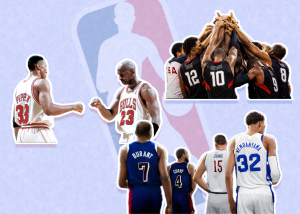Students Take On Research Papers

November 1, 2022
This summer, seniors Siena Esopa and Charlie Algert developed in-depth research papers on subjects that fulfilled their curiosity through the platform, Polygence. Polygence is a program involved in the mentoring and assisting students in research projects, covering a plethora of research topics related to STEM, human & social development, history, and even business. Polygence’s goal is to make research accessible to all students while providing an impactful and educational experience.
Nowadays, it’s undeniable that the internet plays a big role in teenagers’ lives. However, today’s digital culture introduces new concerns that some teenagers are becoming overly insecure and dissatisfied with their appearance due to false portrayals of perfection on social media. Senior Siena Esopa created a 3-part curriculum paper in order to help further understand and manage mental health conditions in young adults caused by social media use. The first part of this curriculum takes an educational approach, its main goal to teach students about the behaviors and effects on an individual suffering from social media dysmorphia. Additionally, this part compels individuals to discover the harm that social media creates in their own lives through a self-reflective exercise. The second part provokes the individual to learn more about themselves by participating in several perception and personality tests. This section also provides a writing exercise in order to help an individual consider the various factors of social media on a deeper scale. The final part of the curriculum breaks down social media dysmorphia and its serious affect on teenagers, all while providing various ways to help combat and overcome this newfound phenomenon. Individuals following the curriculum must create a presentation and take a written exam in order to display their comprehensive understanding of this topic.
Senior Charlie Algert wrote his research paper on language acquisition and discrimination in bilingual infants. Algert felt inspired to write the paper due to his interest in the neural functions of bilingual individuals. His work analyzed multiple studies focused on how a bilingual infant’s brain is able to learn and distinguish different languages. It covered topics such as how code-switching, or the act of using two languages in one sentence or conversation, is an indication of advanced language understanding in infants, as well as the ways that bilingual infants learn languages simultaneously. The paper also demonstrated a comprehensive understanding of processes like inhibitory control, which involves the brain’s ability to inhibit a dominant response, which is key to switching between languages. Algert published the paper within the Polygence High School Research program, and it can now be viewed on Academia.







